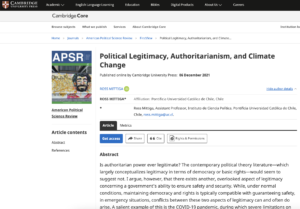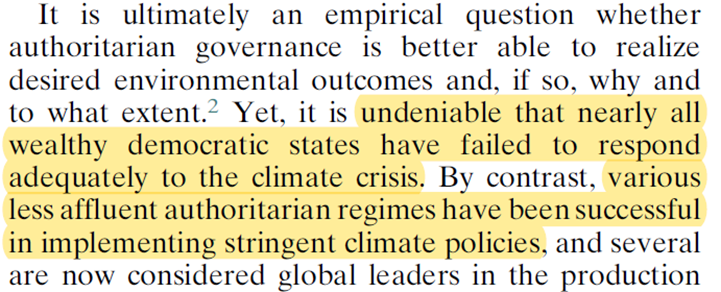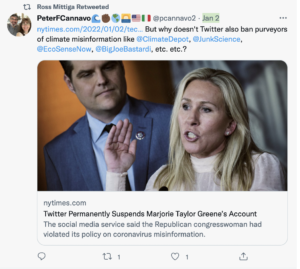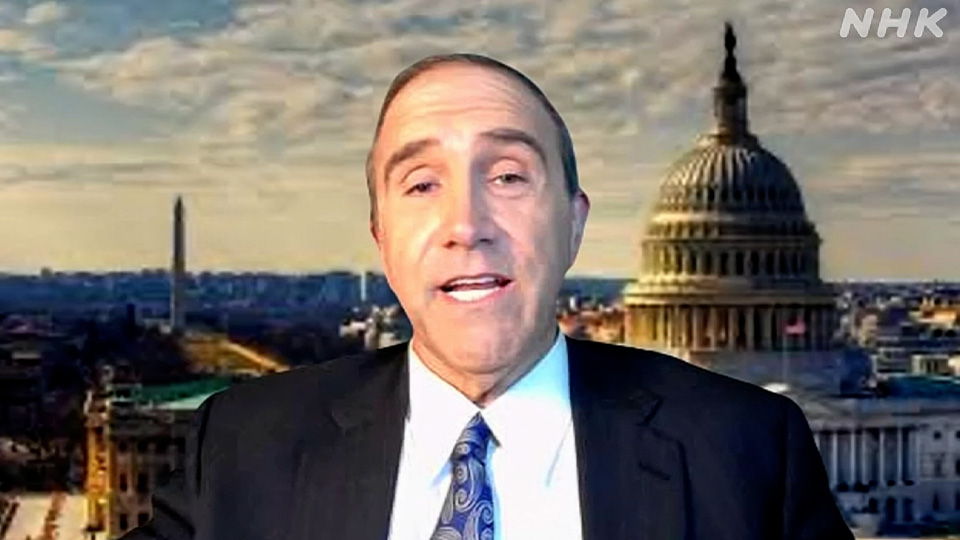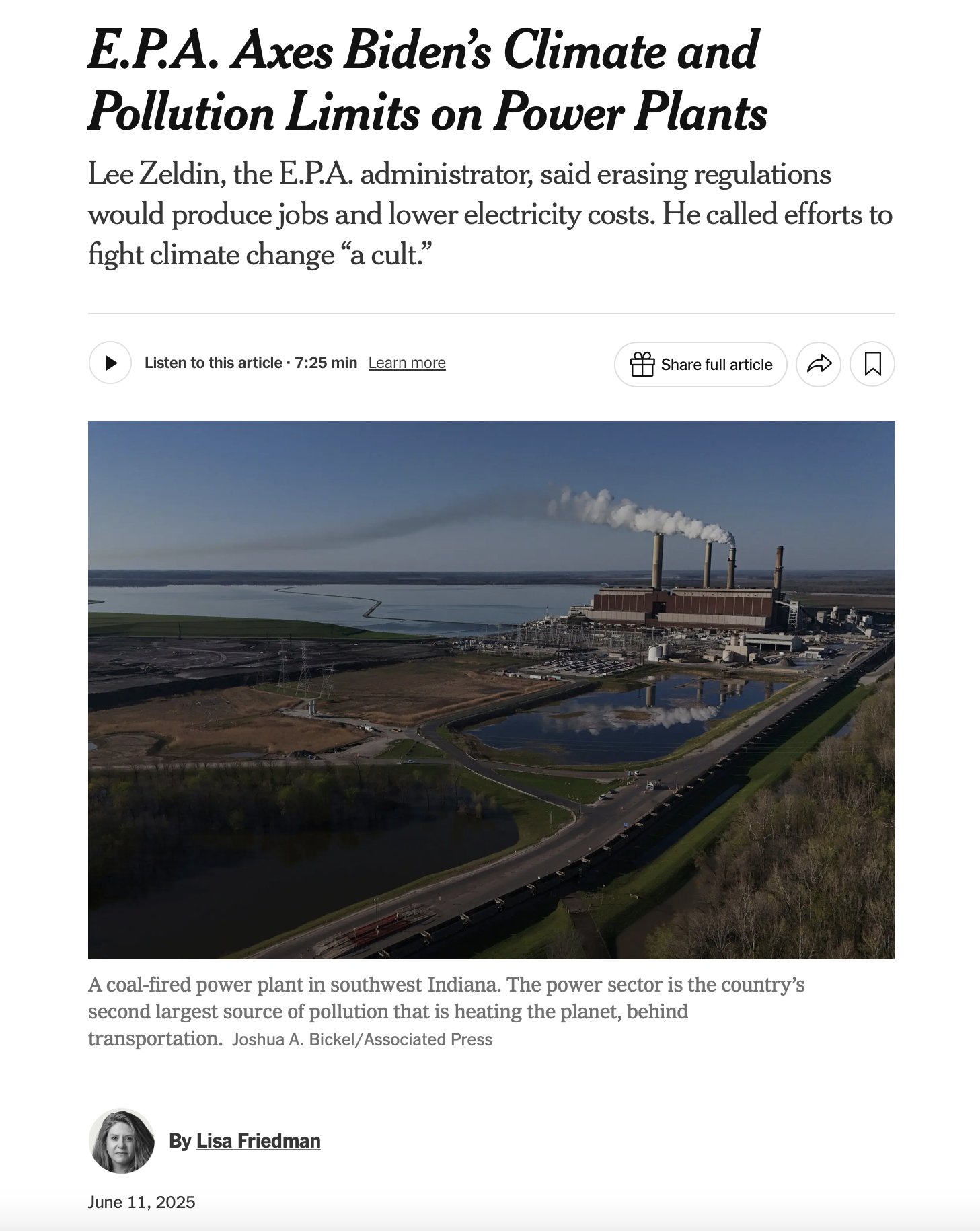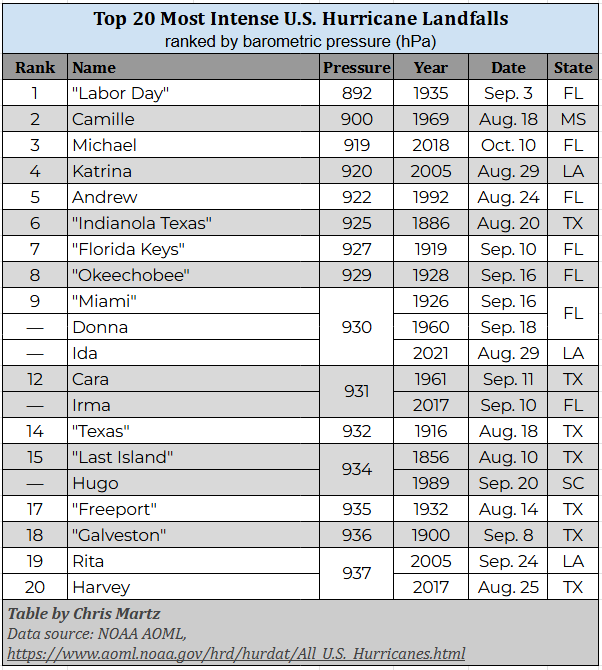Abstract: Is authoritarian power ever legitimate? The contemporary political theory literature—which largely conceptualizes legitimacy in terms of democracy or basic rights—would seem to suggest not. I argue, however, that there exists another, overlooked aspect of legitimacy concerning a government’s ability to ensure safety and security. While, under normal conditions, maintaining democracy and rights is typically compatible with guaranteeing safety, in emergency situations, conflicts between these two aspects of legitimacy can and often do arise. A salient example of this is the COVID-19 pandemic, during which severe limitations on free movement and association have become legitimate techniques of government. Climate change poses an even graver threat to public safety. Consequently, I argue, legitimacy may require a similarly authoritarian approach. While unsettling, this suggests the political importance of climate action. For if we wish to avoid legitimating authoritarian power, we must act to prevent crises from arising that can only be resolved by such means.
#
Below is an analysis of the new study by Professor Alexander Wutke, Political Psychology at U Mannheim who does not support the paper’s ideas.
https://threadreaderapp.com/thread/1476850341564063756.html
Other academics have critiqued the paper.
Professor Alexander Wutke, Political Psychology at U Mannheim: “A prestigious journal in political science, @apsrjournal, has published a disturbing piece of l political theory. In my reading, it explicitly argues that we must put climate action over democracy and adopt authoritarian governance if democracies fail to act on climate change. The study’s main question, as I see it, is whether we should abandon democracy to save the climate. It argues why it could be justified to dismantle democracy in order to ensure climate policies through authoritarian governance. To make the point of abandoning democratic governance the study builds on an unholy alliance of democracy-skeptic references from Hobbes to Schmitt to Extinction rebellion. … If most citizens disagree with you about the optimal trade-off between climate change mitigations and other goals, where do you take the right from to put your preferences over the expressed will of most other citizens? … Overall, I find the article troubling for the context in which it is published. We are going through a 3rd wave of autocratization as @AnnaLuehrmann / @StaffanILindber put it. Pressure on democracy is mounting from multiple sides. … In this climate, we need elites who stand up for the principle of self-governing free and equal people… I think my reading reflects the core argument of the article: a hierarchy of desired goals with climate politics first and democracy second. The article argues that crises not only can legitimize but may require authoritarian governance.”

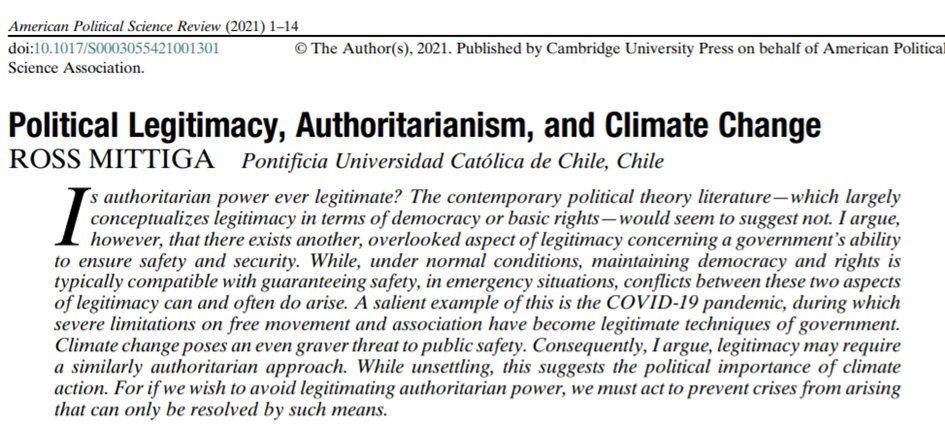
A longer thread to explain why I disagree with the study’s conclusion and arguments.
The author of the study is @RossMittiga.
I’ve been in touch with Ross before publishing this thread but let’s focus on the study itself.
It is clearly written, even when calling for the dismantling of democracy.
Yet, the starting point here is to see democracy as the problem.
(This mirrors sentiments often heard from climate activists.)
To make the point of abandoning democratic governance the study builds on an unholy alliance of democracy-skeptic references from Hobbes to Schmitt to Extinction rebellion.
The core argument is a distinction between foundational (FL) and contingent legitimacy (CL).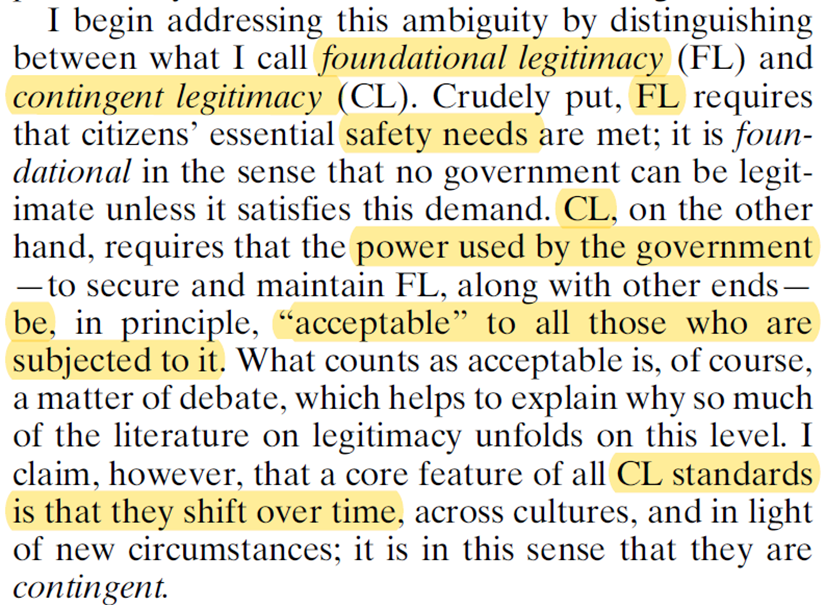
Not mitigating climate change threatens safety and thus undermines foundational legitimacy.
That’s unfortunate for democracy as it now is only of secondary importance.
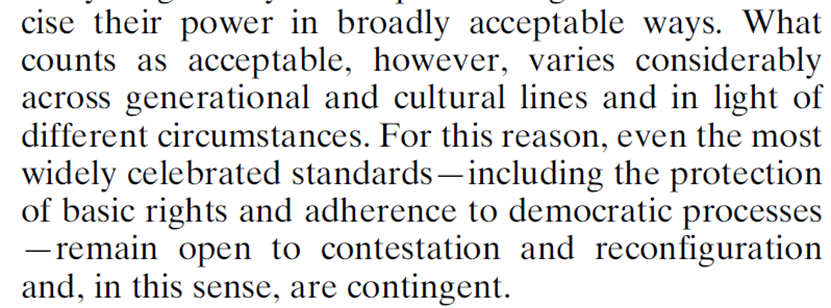
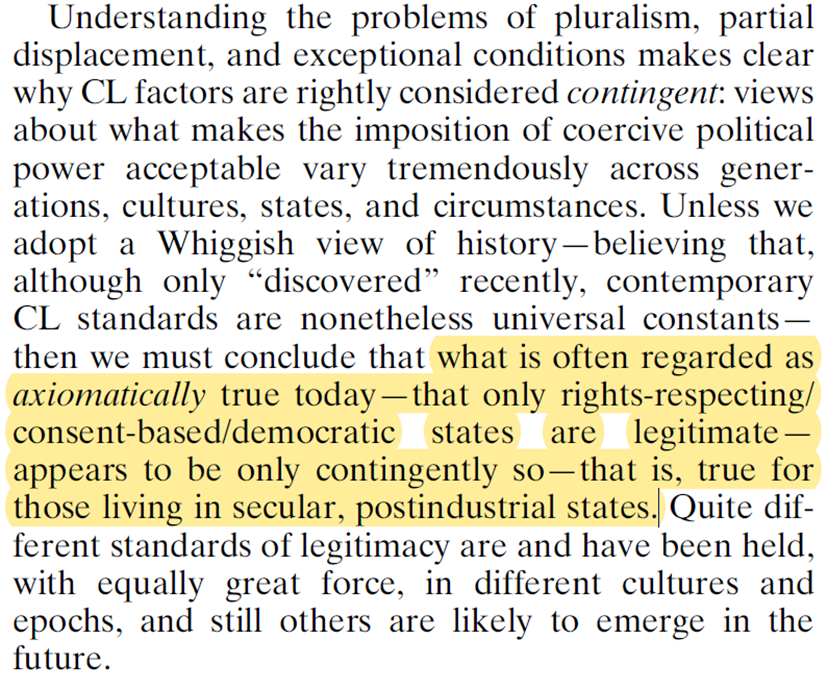
And it leads the author to anti-democratic conclusions. I find all of this troubling and not convincing.

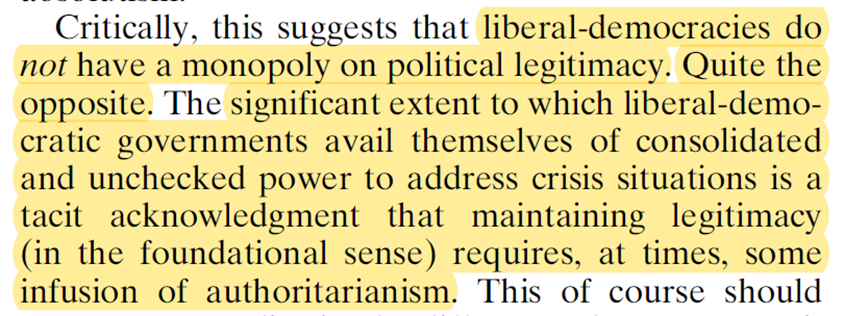
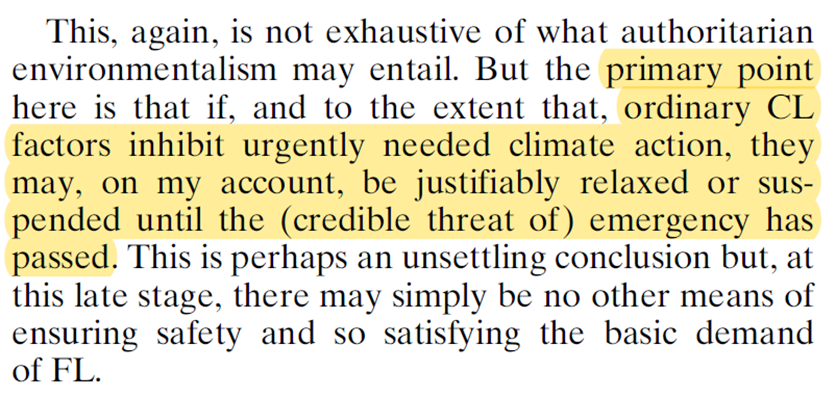
2nd, why would climate change mitigation so clearly count as a primary goal?
3rd, why are the values we want to realize with democracy -equality and freedom- not primary goals?
Are all these (anticipated) threats reason to give up on democracy and who decides on which threats count?
We are going through a 3rd wave of autocratization as @AnnaLuehrmann / @StaffanILindber put it. Pressure on democracy is mounting from multiple sides.
This does not imply denying trade-offs or existing problems. To the contrary.
Being a committed democrat means acknowledging democracy’s imperfections and working on them
You made it to the end of this thread. Congratulations!
Now let me add that @RossMittiga objects that I mischaracterize his article and that he would not advocate for an either/or dichotomy or for dismantling democracy.
#
A DRY RUN FOR TYRANNY – By JOHN HINDERAKER – PowerLine Blog – Excerpt: The proto-fascists among us have delighted in issuing “emergency” orders relating to the coronavirus. These have included, among others, shutdowns and mask and vaccine mandates. The Governor of Minnesota went so far as to issue an “emergency” order prohibiting all residents of the state from leaving their houses without his permission. Many have speculated that statists’ overreaction to covid has been a dry run for more “emergencies” to come. Indeed the supply of potential emergencies is large, particularly when “science” can reliably be deployed on behalf of the state. …
The article is titled “Political Legitimacy, Authoritarianism, and Climate Change” and was authored by Ross Mittiga, a young academic who ran unsuccessfully for the Virginia House of Delegates in 2017 as a Democrat. …
Got that? Do what the Greenies want, or we will declare an emergency and jam our measures down your throats. If we did it with covid, we can do it with global warming, too. The precedent has been set, and we can expect a lot more talk along these lines in the years to come.
Was COVID authoritarianism a practice run for something far worse?
Stop ‘Authoritarian Climate Governance’ Before It is Too Late
Cambridge University is Pushing for Tyranny in the Name of Climate Change – By Anthony Watts –
Mittiga’s paper explicitly argues society must prioritize climate action over democratic principles and adopt an authoritarian government if society fails to politically act on climate change. Or, in the words of the political left: “my way or the highway.” This is disturbing because it completely ignores the will of the people to self-govern, favoring a totalitarian approach in order to tackle what Mittiag deems a “climate crisis.” … So, I ask, where is the so-called “climate crisis” that is portrayed as a certainty by Mittiga in the Cambridge University Press?
According to the disaster database, there isn’t any “climate crisis” at all. In fact, during the 40 plus years of modest warming during which we have been told that global warming aka “climate change” will worsen the human condition, mortality has improved dramatically. Sadly, and frighteningly, as illustrated by Mittiga in the Cambridge University Press the green socialist left is increasingly embracing tyranny in the form of authoritarian power to act on their viewpoint on climate change. But clearly, real-world data don’t support their viewpoint let alone their call to action.
Mittiga claims that he wants avoid authoritarian government forming in response to climate crisis. I put it to him that he wants to destroy the village to save the village, but he had no answer.
— Ben Pile (@clim8resistance) January 4, 2022

#
https://twitter.com/pcannavo2/status/1477727750039420932
Political Legitimacy, Authoritarianism, and Climate Change
Published online by Cambridge University Press: 06 December 2021
Abstract
Is authoritarian power ever legitimate? The contemporary political theory literature—which largely conceptualizes legitimacy in terms of democracy or basic rights—would seem to suggest not. I argue, however, that there exists another, overlooked aspect of legitimacy concerning a government’s ability to ensure safety and security. While, under normal conditions, maintaining democracy and rights is typically compatible with guaranteeing safety, in emergency situations, conflicts between these two aspects of legitimacy can and often do arise. A salient example of this is the COVID-19 pandemic, during which severe limitations on free movement and association have become legitimate techniques of government. Climate change poses an even graver threat to public safety. Consequently, I argue, legitimacy may require a similarly authoritarian approach. While unsettling, this suggests the political importance of climate action. For if we wish to avoid legitimating authoritarian power, we must act to prevent crises from arising that can only be resolved by such means.
… the fundamental law of nature being the preservation of mankind, no human sanction can be good, or valid against it.
—John Locke, Two Treatises, Chapter XI, par. 135
Introduction
As the climate crisis deepens, one can find a cautious but growing chorus of praise for “authoritarian environmentalism.”Footnote 1 This mode of governance, typically associated with China, is often juxtaposed to the “democratic environmentalism” of wealthy, postindustrial states like the United States, Australia, Germany, and Japan. The essential idea behind these encomiums is that, while authoritarianism is in general lamentable, having a government unencumbered by democratic procedures or constitutional limits on power could be advantageous when it comes to implementing urgently needed climate action.
It is ultimately an empirical question whether authoritarian governance is better able to realize desired environmental outcomes and, if so, why and to what extent.Footnote 2 Yet, it is undeniable that nearly all wealthy democratic states have failed to respond adequately to the climate crisis. By contrast, various less affluent authoritarian regimes have been successful in implementing stringent climate policies, and several are now considered global leaders in the production and installation of “solar panels, wind turbines, batteries, and [the adoption of] electric vehicles.”Footnote 3 But, while questions about the relative efficacy of democratic and authoritarian regimes are highly relevant, they do not comprise my focus here. Rather, I am interested in determining under what conditions authoritarian climate governance may be considered legitimate and, more broadly, how governments’ responses to climate change influence normative assessments of their political legitimacy.
To date, political theorists have not thoroughly examined these questions.Footnote 4 They have been explored in some popular media, however. In the television adaptation of Margaret Atwood’s The Handmaid’s Tale, for instance, a commander of the “Republic of Gilead”—a brutal totalitarian theocracy, responsible for overthrowing the US government—boasts to foreign ambassadors that his government has “reduced carbon emissions by 78% in just three years.”Footnote 5 His point is not technical but normative: for the commander, responsible climate action stands as a source of legitimacy. Of course, no environmental policy—however effective or direly needed—is sufficient to legitimate a regime that commits horrifying violations of human rights like the chattel slavery of women. Yet, it is difficult to deny that some relationship exists between climate action and legitimacy.
To understand this relationship, we must think more carefully about what constitutes political legitimacy. Some—like Thomas Hobbes and various contemporary realists—argue that it depends, minimally, on a government’s ability to ensure the safety and security of those it governs. Others—particularly those within the democratic and liberal traditions—adopt a moralized view, claiming that legitimacy requires, for example, consent, democracy, equal representation, protections of individual rights, social justice, or, most often, some admixture of these factors. Although it is tempting to regard the former, “realist,” view and the latter, “moralist,” view as representing competing answers to the same question (“what constitutes political legitimacy?”), I argue that they are actually usually complementary, their demands only coming into conflict in dire conditions. Some thinkers—most notably, Bernard Williams—have identified this dual dynamic; however, the precise relationship between the realist and the moralist conceptions of legitimacy remains vague, particularly in the context of climate change.
I begin addressing this ambiguity by distinguishing between what I call foundational legitimacy (FL) and contingent legitimacy (CL). Crudely put, FL requires that citizens’ essential safety needs are met; it is foundational in the sense that no government can be legitimate unless it satisfies this demand. CL, on the other hand, requires that the power used by the government—to secure and maintain FL, along with other ends—be, in principle, “acceptable” to all those who are subjected to it. What counts as acceptable is, of course, a matter of debate, which helps to explain why so much of the literature on legitimacy unfolds on this level. I claim, however, that a core feature of all CL standards is that they shift over time, across cultures, and in light of new circumstances; it is in this sense that they are contingent.
Following this, I examine the relationship between FL and CL. I argue that under normal, reasonably favorable conditions, FL functions as something of an unacknowledged background condition of CL. In moments of great exigency and upheaval, however, tensions between FL and CL can and often do arise. In such cases, I claim that preserving or restoring FL should take priority over satisfying any particular demand of CL. In other words, from the perspective of political legitimacy, ensuring safety and security may, at times, justify relaxing or suspendingFootnote 6 strict adherence to certain democratic processes or individual rights.Footnote 7
Although the idea of such trade-offs will strike many as troubling, we should note that they already comprise a nearly ubiquitous—if often only implicit—element of contemporary political practice.Footnote 8 In times of war, for instance, authoritarian impositions of power, including those that curtail democratic processes or basic rights, are often thought legitimate to the extent they are necessary for protecting citizens and restoring normal conditions. Likewise, as those who have survived COVID-19 can attest, during a health emergency, severe and enduring limitations of rights to free movement, association, and speech can become legitimate techniques of government, even in robustly liberal-democratic states. As these examples suggest, in crisis moments, political legitimacy may not only be compatible with authoritarian governance but actually require it. Conversely, stringent adherence to liberal-democratic constraints may diminish legitimacy insofar as it inhibits effectively addressing credible security threats.
Again, many may regard the prospect of such moral compromise as deeply problematic. To be clear, though, the argument presented here should not be understood as an endorsement of authoritarianism but rather as a warning: should we wish to avoid legitimating authoritarian politics, we must do all we can to prevent emergencies from arising that can only be solved with such means.
Lamentably, this is not always possible. Indeed, as I argue below, climate change is (or may very soon become) sufficiently grave and disruptive as to jeopardize FL. And herein lies the allure of authoritarian environmentalism: for if, as many now contend, liberal-democratic norms, principles, and institutions impede urgently needed climate action, then legitimacy may permit—or even require—relaxing or abandoning those constraints.
While we may wish to resist the view that the factors most commonly associated with CL—like respect for democracy or basic rights—could ever meaningfully inhibit climate action, examples of precisely this are manifold. Democratic publics have, on multiple occasions, defeated (via referendum or protest) even modest carbon taxes.Footnote 9 Free-speech rights in many countries have made regulating harmful climate denial and disinformation campaigns virtually impossible.Footnote 10 Likewise, the primacy of individual autonomy has at times rendered even minor interventions (e.g., around lightbulbs,Footnote 11 fuel efficiency standards,Footnote 12 or dietsFootnote 13) extremely contentious, and more ambitious policies (like population control) totally unthinkable. Given this, liberal-democratic governments (and theorists) must confront the bleak possibility that responding to the existential threat of climate change at this late stage may require relaxing or suspending adherence to some of the most widely shared CL standards and embracing authoritarian power.
I argue further that, as climate change is likely to be disruptive for a long time, it may also cause a more permanent reconfiguration of CL standards. That is, the climate crisis may not just lead to temporary and localized suspensions of (for example) democratic processes or individual rights but precipitate a more substantial and enduring shift in what counts as an “acceptable” use of political power. While there is space for concern about such changes, they may not be all for the worse. Imagine, for instance, if democratic representation came to be understood in intergenerational terms, such that only those governments that awarded formal standing to future people were considered legitimate;Footnote 14 or, if individual human rights were thought to be predicated on, and therefore limited by, a more basic biotic right to continued existence, shared by all living beings.Footnote 15 In the final section, I limn three potential CL factors in this spirit, all of which, I claim, are already influencing normative assessments of legitimacy and are only likely to grow more salient as the climate crisis deepens.
Before moving on, three brief clarifications are necessary. First, in this article I separate questions about legitimacy from those concerning political obligation, and remain neutral about their relationship. Second, this article examines political legitimacy as a normative concept,Footnote 16 but with the understanding that the values underpinning it are determined by the perspectives, experiences, and assessments of specific human communities in specific historical moments and thus are mutable in ways that many moral theories resist.Footnote 17 Finally, I use “authoritarian” in fairly a generic and expansive sense throughout to refer to political arrangements or modes of governance that are illiberal (i.e., rights- and freedom-constraining), undemocratic, and characterized by a concentration of executive power.
Two Levels of Political Legitimacy
Our first task is to clarify what exactly is meant by political legitimacy. In this section, I examine a range of standard conceptions. My intention here is not to give an exhaustive overview of the (considerable) literature on legitimacy nor to endorse or critique any particular theory, but rather to introduce a useful conceptual distinction—that between FL and CL—in order to facilitate deeper analysis of authoritarian emergency powers.
Foundational Legitimacy (FL)
As noted earlier, FL pertains to a government’s ability to ensure the safety and security of its citizens. This is bound up with a range of political capacities and actions including, among other things, being able to ensure continuous access to essential goods (particularly food, water, and shelter), prevent avoidable catastrophes, provide immediate and effective disaster relief, and combat invading forces or quell unjustified uprisings or rebellions. If a government cannot fulfill these basic security functions, it is not legitimate, if it is even a government at all.
This security-centric view is most naturally associated with Thomas Hobbes, who famously held that a legitimate government is that which is able to end the war of all against all and establish the conditions necessary for lasting peace and fruitful social cooperation.Footnote 18 These are such great goods that we should be willing (Hobbes thinks) to accept any power capable of providing them. Indeed, on his view, the greater the power, the better, as this entails a more stable and enduring provisioning, hence Leviathan’s defense of absolute sovereignty. Notably, Hobbes concedes that unchecked power may result in a range of evils, like persecution of the innocent; yet, he thinks such risks are acceptable to the extent they are necessary for ensuring each person’s overriding interest in his or her own preservation.Footnote 19 (In fact, for Hobbes, our interest in self-preservation is so fundamental that it provides the limit of political obedience: we should submit to political authority only up to the point that doing so will bring about our personal demise.Footnote 20) Thus, so long as a given government has the power to keep the peace and protect its citizens—which, for Hobbes, constitutes “the very essence of government”Footnote 21—its use of that power is, ipso facto, legitimate.
There are, of course, serious issues with Hobbes’s view, most of which have been examined extensively.Footnote 22 But a relevant problem for our purposes is that it is not immediately clear who is able to determine whether the sovereign is (capable of) protecting its citizens and therefore satisfying FL. Moreover, Hobbes affords little recourse for those subjected to a government that fails in this regard: he just repeatedly claims that only a greater power can oversee and check the sovereign,Footnote 23 in many instances suggesting that this greater power may be God alone.Footnote 24
Even if we could find satisfying solutions to these problems, we should still reject Hobbes’s more general view that ensuring the safety and security of those subject to a political power is enough for establishing the legitimacy of that power—at least given normal, reasonably favorable conditions. Bernard Williams makes this point. Like Hobbes, he believes that “the securing of order, protection, safety, trust, and the conditions of cooperation” comprises “the ‘first’ question of politics.” Yet, “first” in this context simply indicates that solving it “is the condition of solving” other important political questions—that is, those at the level of CL. Thus, for Williams, in contrast to Hobbes, ensuring basic safety is a “necessary condition of legitimacy,” but it is not always “sufficient.”Footnote 25 Rather, Williams argues, legitimacy also requires that power be exercised in broadly “acceptable ways.”
The idea that in, and especially after, attending to order and security, broader questions about acceptability arise, is another way of indicating that legitimacy has a two-tiered dynamic. In this sense, the question of what counts as an acceptable use of power is, at bottom, one about which factors are relevant to CL. I examine the concept of CL in the following subsection. We should note here, however, as Williams is quick to do, that what counts as “acceptable” power will vary considerably across cultural and generational lines and, especially, in light of different material circumstances. Thus, in our contemporary world, democracy and liberal rights are widely regarded as essential facets of acceptability such that most—if not all—illiberal or nondemocratic regimes are considered illegitimate.Footnote 26 Yet, in premodern times, other factors were considered central to acceptability, like the religious identification or familial lineage of the rulers.
This raises the obvious question: if contemporary conditions were to change, would rights and democracy remain central to legitimacy? Although Williams never addresses this question directly, he suggests in one passage that, in Hobbes’s historical context, ensuring safety (by concluding the “war of all against all”) may well have been sufficient for legitimacy. This observation raises further questions, however. What was it about Hobbes’s time that made FL enough for legitimacy? Could similar conditions arise today?Footnote 27 Moreover, how should a government proceed if a commitment to prevailing standards of acceptability jeopardize or directly undermine its ability to ensure basic safety? What if, for instance, a majority of citizens decide democratically not to redress an emerging existential threat? Should this seem implausible, consider how many thousands of people have organized, protested, and voted so as to frustrate or defeat even the most minimal, low-cost public-health policies during the COVID-19 pandemic—for example, requirements to wear a face-mask or maintain a safe distance in social settings.Footnote 28
We should note finally that Hobbes’ and Williams’ basic claim—that a government’s ability to protect citizens is an essential part of what makes it legitimate—is underspecified. It is reasonable to think that what matters for legitimacy is not just a government’s ability to protect citizens now but also its ability to continue doing so into the future.Footnote 29 This becomes clearer when we consider how much people are often willing to sacrifice (themselves, their time, their property, etc.) to ensure that their society or nation will persist (and ideally flourish) after their own deaths.Footnote 30 This suggests that FL is also intimately related to trust or confidence in a government’s long-term capacities and ability to endure. Even if a state is characterized by peace and material sufficiency in the present, should it be sufficiently vulnerable to future threats—such that at any point it could plausibly no longer be able to respond to an emergency, maintain order, and protect citizens—then it appears that government already lacks FL. As Hobbes, Williams, and others emphasize, legitimacy arises as a function of power; a powerless government therefore cannot be legitimate. This suggests that present conditions and security capacities are not enough for establishing FL. There must also be some evidence (or at least belief in the idea) that the government is, at minimum, not actively undermining its future security; and, more stringently, that it will be able to respond to still unknown critical threats if and when they should arise.
To summarize, then, a government possesses FL if it can and does protect citizens and has (or is at least believed to have) the power to continue doing so into the future. Yet, this is not (always) sufficient for political legitimacy. Other factors, related to what makes the use of political power acceptable, (typically) also matter. Important questions remain, however, about exceptional circumstances—that is, conditions under which FL may alone be sufficient. In the following two subsections, I approach these questions by way of examining contemporary standards of acceptability and their relationship to FL.
Contingent Legitimacy (CL)
According to theories of what I am calling CL, a government is legitimate if it exercises power in acceptable ways.Footnote 31 What is capable of rendering power legitimate is a matter of extensive debate, which is evinced by the fact that much of the relevant literature operates on this level. Among the most commonly defended factors, however, are the presence of democratic rights and processes, consent, guarantees of equal representation, provision of core public benefits, protection of basic individual rights and freedoms, social justice, and observance of fairness principles. Most contemporary theorists maintain that legitimacy requires multiple of these factors—some of which are procedural and others substantive.Footnote 32
Concerning procedural factors, a common view is that democracy is essential for legitimacy. The precise reasons for this vary by the thinker. Some, like Thomas Christiano, hold that democracies provide the most fair and effective means for resolving evaluative disagreements among equals.Footnote 33 Allen Buchanan, on the other hand, argues that wielding political power over equals can only ever be justified if each citizen has an “equal say” in determining who will command that power, and democracy alone can provide this.Footnote 34 On both accounts, however, the basic conclusion is the same: democracy is essential for legitimacy.
Many theories also associate legitimacy with one or more substantive factors. One enduringly popular view centers on consent, taking this as necessary for squaring the imposition of coercive power with individual freedom and the moral equality of persons.Footnote 35 This view is often criticized, however, on the ground that very few people ever actually consent to a government in the explicit and content-independent sense thought necessary for establishing political legitimacy. This difficulty has led sympathetic scholars to either adopt a mediated notion of consent—for example, tacit or hypothetical consentFootnote 36—or else insist that consent matters for grounding a government’s “claim-right to obedience” but is irrelevant to the broader question of legitimacy.Footnote 37 Many others, however, maintain that, given consent theory’s problems, other factors are more relevant to legitimacy. Perhaps the most compelling alternative holds that a government is legitimate if it wields its power (a) so as to protect the most basic rights of those who are subject to it and (b) in such a way that expresses respect for those rights.Footnote 38 This “basic-rights view” is understood to imply strict, constitutional limits on state power; it is popular among liberal thinkers because it avoids the obvious pitfalls of consent theory without resorting to consequentialism.
There are of course many other procedural and substantive factors associated with legitimacy. This very cursory survey, however, should suffice for examining three general issues facing all CL theories. First, as just noted, there is widespread disagreement about which factors are relevant to legitimacy—for example, democracy, protection of rights, consent. Moreover, most people (including most philosophers) value multiple factors. This raises the problem of determining which matter(s) most, particularly in instances of conflict.Footnote 39 Should it be the case, for instance, that democratic processes yield results that undermine individual rights—as when majorities vote to limit free expressions of faithFootnote 40—reasonable people might disagree about whether such a decision is legitimate. We can refer to this as the problem of pluralism; it suggests that any firm agreement on what matters (most) for CL will remain elusive or at least always open to contestation and renegotiation.
The contestability of CL is likely a function of its historically determined character: bases of legitimation at this level come into existence slowly, often only partially supplanting others. For instance, before Hugo Grotius, Samuel Pufendorf, and the broader social-contract tradition emerged, there was little concern over whether states enjoyed the consent of those they governed.Footnote 41 Other standards were thought to ground legitimacy. Robert Filmer, for one, argued that what makes a government legitimate is the ability of leaders to trace their lineages back to Adam.Footnote 42 While this view may appear ridiculous, we must remember that lineage and religious affiliation were among the most salient CL factors until quite recently, and they undoubtedly continue to shape perceptions of legitimacy today. Consider, for instance, the right-wing obsession with former US President Barack Obama’s religious viewsFootnote 43: the mere possibility that he was Muslim was thought by many to disqualify him from the office. Although this may seem a fringe position, opinion polls routinely show that religious identification matters greatly to many US citizens. (According to one survey, nearly one third of voters believe that atheists should be legally prohibited from becoming president.Footnote 44) These slow, historical processes of value change suggest that CL theories also face what we can call the problem of partial displacement. The essential idea is that when new legitimation factors emerge, earlier ones may not entirely disappear but only become less salient, at least for sizable portions of the citizenry. This further compounds the problem of pluralism noted above.
A third and final issue concerns the fact that even widely shared and seemingly stable CL factors are routinely relaxed or abandoned during emergencies, often without calling into question the basic legitimacy of the government. We can refer to this as the problem of exceptional circumstances, examples of which are manifold.Footnote 45 A familiar US case concerns Abraham Lincoln’s authoritarian actions during the Civil War. As George Kateb (Reference Kateb2015, 63) describes, “Lincoln destroyed the revered Constitution temporarily to save it.” This “destruction” involved suspending or failing to protect some of the most important rights that document enumerates—many of which, like habeas corpus, were then, as they are now, considered fundaments of political legitimacy. The ongoing COVID-19 pandemic offers another, more contemporary example: in liberal-democratic states across the world, elections have been delayed, domestic and international movement severely restricted, associations and meetings limited or banned, commerce constrained, private factories repurposed by fiat, and in some cases free speech curtailed to prevent the spread of disinformation. Such authoritarian impositions are common during wars, economic depressions, and wide-scale natural disasters. Of course, not all emergencies are equal—or even real; thus, these powers have a high potential for abuse. Moreover, even when they do not function as a vehicle of corruption, the use of authoritarian powers may still precipitate or exacerbate political instability.Footnote 46 Nevertheless, the fact that even liberal-democratic governments consistently resort to such powers in moments of great exigency suggests that the value of CL factors depends greatly upon the prevailing circumstances.
Understanding the problems of pluralism, partial displacement, and exceptional conditions makes clear why CL factors are rightly considered contingent: views about what makes the imposition of coercive political power acceptable vary tremendously across generations, cultures, states, and circumstances. Unless we adopt a Whiggish view of history—believing that, although only “discovered” recently, contemporary CL standards are nonetheless universal constants—then we must conclude that what is often regarded as axiomatically true today—that only rights-respecting/consent-based/democratic states are legitimate—appears to be only contingently so—that is, true for those living in secular, postindustrial states. Quite different standards of legitimacy are and have been held, with equally great force, in different cultures and epochs, and still others are likely to emerge in the future.
The relationship between FL and CL
We must now consider the relationship between FL and CL. This relationship has not been well explored in the literature on legitimacy, perhaps because under reasonably favorable conditions—which are common today where much of the world’s philosophy is produced—serious tensions between CL and FL tend not to arise. Rather, under such favorable conditions, the imperative of maintaining safety can be satisfied without violating CL factors. This, again, appears to be Williams’ point in claiming that FL represents “the first political question”: viz., once this question is resolved and security is assured, concerns about justice, rights, and democracy take center stage and legitimacy assumes a more complex, moral shape. In short, FL often operates (unacknowledged) in the background, being the more invisible, the more firmly security is established.
The possibility of conflict becomes obvious in crisis moments, however, during which the ability of a government to protect its citizens is no longer assured. Following the literature, we may refer to such moments as “states of exception.”Footnote 47 A state of exception (hereafter, SOE) is precipitated by an emergency (or credible threat thereof) of sufficiently great magnitude that prevailing political institutions, processes, norms, etc. either impede the swift action needed to preserve/restore normal conditions or simply break down.Footnote 48 Faced with an SOE, political leaders have a terrible choice: either (a) relax or suspend any laws, processes, norms, etc. that hinder action—many of which may be central to CL—in order to respond expediently and effectively to the threat or (b) proceed with normal constraints intact and risk danger, destruction, and collapse.Footnote 49
The examples provided above, concerning political responses to the US Civil War and the COVID-19 pandemic, illustrate this dilemma. There are of course countless others, tracing back to the dictatorships of ancient Rome.Footnote 50 My aim here, however, is not to enumerate types of emergency powers, nor to consider whether their use was or could have been justified in any particular case. Rather, I am interested in examining the tension that arises from the fact that, during SOEs, the institutional and normative structures that are meant to safeguard individual rights, democratic governance, equal representation, etc. may actually serve to hinder necessary action, and considering what this means for legitimacy.
My essential claim is that when such conflicts between CL and FL arise, political legitimacy will depend more (or even exclusively) on whether security needs are met than on whether CL factors are satisfied. Establishing this requires pursuing two basic questions: (1) what, exactly, justifies prioritizing FL over CL when conflicts between them occur? and (2) who decides when and to what extent such trade-offs are permissible?
Concerning the first question, we must recall the basic difference between CL and FL. The factors associated with CL condition the use of political power by specifying, for instance, what can or cannot be done or sacrificed, how decisions should be made, and who counts (and for how much). The answers to these questions often appear to us as moral universals; yet, in practice, they are the products of long and contentious historical processes. FL, on the other hand, does not vary between societies, generations, or circumstances. Ensuring safety and security is always the primary—though, in good states, under reasonably favorable conditions, not the exclusive—end of political power.
Aristotle expresses something like this in insisting that the point of political society is to furnish the resources needed not just to live but to live well. Footnote51 Crudely put, FL is about living, CL about living well. And it is of course impossible to live well without living: after all, there can be no democracy of desolation, no fair social cooperation in conditions of extreme scarcity, no real rights when political stability is maintainable only through raw assertions of coercive power (if it can be maintained at all). In this sense, FL is necessarily prior to CL, and must be regarded as such in moments when trade-offs become a necessary part of the political calculus.Footnote 52
One might object here that a government’s ability to keep us alive, however wretchedly, is not enough for legitimacy, even in thrall to a genuine SOE. Consider Patrick Henry’s compelling plea to the Second Virginia Convention in 1775:
Is life so dear or peace so sweet as to be purchased at the price of chains and slavery? Forbid it, Almighty God! I know not what course others may take; but as for me, give me liberty or give me death!Footnote 53
Clearly, there are some values for which many people, like Henry, would willingly risk grave harm to protect or promote. But this fact is not in tension with my argument. Henry is criticizing the idea of authoritarian power being used in normal (non-SOE) conditions to maintain an artificial peace. My argument, however, is that relaxing or suspending CL standards is justifiable only when—and to the extent that—doing so is necessary to address serious and credible threats to citizens’ safety.
Moreover, as both Hobbes and Williams stress, a legitimate government should not be the source of the security threat—the very “reign of terror”—its own power was meant to conclude.Footnote 54 This would likely be the case, as it was for Henry, if a government abridges rights or circumvents democratic processes for reasons other than responding to a threat at the level of FL. The Chilean uprising of 2019 offers a helpful contemporary example of this point. In October of that year, the government deployed militarized police forces to curtail peaceful student protests against a sudden metro fare increase. Yet, the police violence and the democratic suppression it entailed served to catalyze additional, much larger protest actions. While most of these were peaceful, some, especially during the first two days, did involve property destruction and violence (particularly against police officers). Rather than attempting to de-escalate the situation through deliberation, ameliorative social policies, or even modest public apologies, the Piñera government instead responded by declaring martial law, greatly increasing the presence of armed forces, and implementing extreme curfews. These were authoritarian measures, which—the government claimed—were justified in light of the security threat posed by the demonstrations. In the framework I have been defending, however, such impositions could not have been considered legitimate, given that, again, the government’s actions were and continued to be the real and direct source of the security threat and because other rights- and democracy-respecting (i.e., nonauthoritarian) solutions remained available. What ensued was not a security threat for the people so much as for (some of) the government. And to the extent ordinary people were at risk, nonauthoritarian means could have been used to defuse tensions and resolve the underlying danger.
This suggests another important point. I am not arguing that only unchecked authoritarian power is appropriate during an SOE. Sensible limits may be observed, which may effectively operate as temporary alternative bases of CL. In the Roman Republic, for instance, dictatorial powers were subject to regular assessment and renewal by the Senate, and so limited in time and scope.Footnote 55 Similarly, most contemporary political societies require that a transparent standard be set for determining when a serious threat arises (and when it has passed) before ordinary CL factors can be justifiably overridden.Footnote 56 These measures may (at least sometimes) prevent “emergencies” from being declared against amorphous entities, like terrorism, the threat of which has sustained a continuous “SOE” in the US since 2001.Footnote 57 The literatures on just war and political violence suggest other plausible constraints.Footnote 58 We might, for instance, stipulate that authoritarian interventions must be necessary—that is, that no other viable options remain for responding to the crisis at the speed or scale required. Also relevant would be a version of the success criterion, which holds that the exercise of such powers must have a reasonable chance of achieving their goal (i.e., overcoming the crisis). Another candidate would be something like the proportionality constraint, in this case specifying that authoritarian power should be exercised only to the extent necessary for, and in the domains relevant to, responding to the crisis.Footnote 59 These points notwithstanding, it is important to note that limits on emergency powers are not coincident with ordinary CL factors. Moreover, in many cases, even legally constrained emergency powers may still be fully compatible with authoritarian governance.Footnote 60
This suggests the significance of the second question above, about who decides when a state is facing an SOE and which trade-offs are necessary for addressing it. The best-known answer to this question is Carl Schmitt’s, who defined sovereignty precisely in terms of the capacity to “decide on the exception.”Footnote 61 This stands behind his critique of liberal democracy, which he believes lacks recourse to a single agent capable of declaring an SOE and deciding which, if any, CL factors must be relaxed or suspended in order to preserve safety. This is a serious defect, as it means that such governments may be unable to respond quickly and effectively to emergencies when they arise.
While this concern may be plausible in relation to an idealized liberal-democratic state, in politics, just as in nature, there are no pure forms. Virtually every government today has explicit provisions for emergency rule.Footnote 62 For instance, the US National Emergencies Act affords the President a range of powers, including the ability to declare martial law, seize land, suspend the internet, and indefinitely detain suspects without criminal charges.Footnote 63 Similar measures exist even in liberal-democratic states with a deep cultural-historical wariness of authoritarian power. This is true in Germany, for instance, which long resisted formally promulgating such powers, given that similar constitutional provisions—the now infamous Article 48—provided a fully legal route for the Weimar government’s descent into fascist totalitarianism.Footnote 64
Many states only ambiguously define the full scope of emergency powers an executive can wield, as well as the conditions that can trigger their use. In some sense, this is to be expected: it is difficult to specify in advance what shape an emergency will take and how best to respond to it. As Schmitt stresses, the SOE “defies general codification.”Footnote 65 We can isolate some common features, however. In SOEs, legislative and judicial powers, along with ordinary constitutional checks and balances and individual rights, are often (to varying degrees) relaxed or suspended, whereas a unitary executive is greatly empowered (though typically within some time limit or subject to some, more or less transparent, oversight agency). In this way, the promulgation and use of emergency powers appears to blur the line between constitutional forms. Hence, Agamben’s perceptive observation that the SOE “appears as a threshold of indeterminacy between democracy and absolutism.”Footnote 66
Critically, this suggests that liberal-democracies do not have a monopoly on political legitimacy. Quite the opposite. The significant extent to which liberal-democratic governments avail themselves of consolidated and unchecked power to address crisis situations is a tacit acknowledgment that maintaining legitimacy (in the foundational sense) requires, at times, some infusion of authoritarianism. This of course should not cause us to dismiss the differences between constitutional forms in normal conditions or overlook the fact that a given government can be more or less legitimate than others, even during SOEs. It does suggest, however, that a capacity for authoritarian governance, as well as a means for expeditiously adopting it in dire circumstances, constitute essential components of political legitimacy.
Climate change and legitimacy
So far, I have argued that FL and CL ordinarily exist in harmony with one another. However, during, or in anticipation of SOEs, conflicts between CL and FL can and often do arise—particularly when factors associated with the former (like democratic processes or individual rights) limit a government’s ability to preserve or restore security. In these cases, FL is necessarily prior to CL, as CL factors cannot be long sustained in conditions of great insecurity or scarcity. Put another way, without FL, there can be no CL, at least for long.
Prioritizing FL over CL in crisis moments may entail embracing authoritarian governance. In this sense, authoritarianism is not antithetical to political legitimacy; rather, legitimacy seems to require it, at least in exceptional circumstances. Again, this claim should not be taken as a denial of the potential dangers of authoritarianism, the vast potential for corruption it presents, or the extent to which emergencies can be fabricated to facilitate the consolidation of political power. Authoritarian governance is a blunt instrument, only to be wielded in times of great exigency.
Climate Emergency
Typically, the best means we have for avoiding recourse to authoritarian governance is preventing, as far as we are able, the kinds of emergencies that make it necessary. Unfortunately, after decades of inaction, this may no longer be possible with respect to climate change—in two senses.Footnote 67
Emergency of Effects
First, and most obviously, climate change confronts us as an emergency of effects. As the most recent Intergovernmental Panel on Climate Change (IPCC) report shows unequivocally, climate change is already causing massive displacement, agricultural loss, famine and drought, extreme weather, and novel health crises in many regions and states. Without sufficient action, these and other “extreme events” will become consistent and crippling global phenomena by the end of the century.Footnote 68 Indeed, according to a (likely conservativeFootnote 69) report from the World Bank, “we’re on track for a 4°C warmer world [by 2100] marked by extreme heat waves, declining global food stocks, loss of ecosystems and biodiversity, and life-threatening sea level rise.” In such a world, the report concludes, there is simply “no certainty that adaptation … is possible.”Footnote 70 The reasons for this are manifold; however, we can briefly consider a few salient points here.
For one, climate change is causing increasingly serious and frequent shocks to global food and water supplies. With the warming we have already “locked in,” approximately one third of the glaciers in the Himalayan region, which today provide drinking water for nearly two billion people, are likely to disappear over the next several decades.Footnote 71 Changes in precipitation and increased temperatures are similarly affecting access to water and disrupting agriculture in other parts of the world. Without drastic cuts in emissions, by 2080, southern Europe, Iraq, Syria, “the breadbasket regions of China,” and “some of the most densely populated parts of Australia, Africa, and South America” may all experience “permanent extreme drought,” far more severe and enduring than the worst of the North American Dust Bowl. Should this happen, “[n]one of these places, which today supply much of the world’s food, will be reliable sources of any.”Footnote 72 Taking all of this into account, the UN estimates that climate change may cause food prices to increase up to 84% by 2050.Footnote 73
Moreover, the extreme heat waves associated with climate change and the carbon pollution driving it are already directly causing millions of premature deaths each year.Footnote 74 This tragedy is compounded by the unequal distribution of climate effects globally. For instance, according to Nicholas Stern, “compared with a world without climate change,” 2° to 3°C of warming by 2100 will cause the deaths of “an additional 165,000–250,000 children” each year in South Asia and sub-Saharan Africa alone.Footnote 75 This helps to explain why a Marshall Islands representative described the Paris Agreement’s modest pledges as “genocidal”Footnote 76 and why current UN Secretary General Antonio Guterres is calling the latest IPCC report a “code red for humanity.”Footnote 77
These developments are likely to aggravate preexisting stressors such as poverty, environmental degradation, and sociopolitical tensions, thereby triggering more frequent and aggressive resource conflicts. Indeed, according to one estimate, for every 0.5°C of warming, armed conflict is 10–20% more likely to occur.Footnote 78 For this reason, global security experts routinely refer to climate change as a “threat multiplier.”Footnote 79
Emergency of Action
The time window for preventing these dreary outcomes is rapidly closing; in this sense, climate change also confronts us as an emergency of action. According to the IPCC, to have even a 50-50 chance of preventing a > 1.5ºC rise in global temperatures—which is widely regarded as the upper limit of relative safety—we must achieve an 80% reduction in global emissions by 2030 and a 100% reduction (i.e., complete carbon neutrality) by 2050.Footnote 80 This would require an unprecedented mobilization of resources and political will—likely exceeding that undertaken during WWIIFootnote 81—particularly among the world’s most heavily polluting (and typically recalcitrant) states, like the US, Australia, Canada, China, Brazil, and India. The necessary policies—which would almost certainly involve enormous public investments, and so new taxes or sovereign debt, along with expansive restrictions on individual behaviors and consumption—are not likely to be popular, and may indeed inspire considerable resistance, among both the general public and negatively affected industries. Nevertheless, preventing catastrophic climate change critically depends on governments’ ability (and willingness) to rapidly promulgate, widely implement, and consistently enforce such policies, particularly during the next three decades.
Climate Action and Regime Legitimacy
Given all of this, it is clear why—often at the behest of committed activists—hundreds of governments, representing a combined 798 million people, have declared a “climate emergency.”Footnote 82 While these declarations are symbolically significant, they have rarely been paired with serious action. If this does not change soon, many states face the prospect of intense near-term shocks, scarcity, and violence, and all risk political catastrophe and collapse in the long-term.
In this sense, it appears that climate change constitutes a full-scale legitimacy crisis, even for otherwise legitimate governments. For if we take the imperative of ensuring safety and security to be a necessary condition of legitimacy, as I have been arguing we should, then it follows that those governments that do not undertake adequate climate action are, for that reason, illegitimate regardless of their commitments to liberal-democratic values or other normative virtues. The converse, however, is not (necessarily) true: so long as it is possible to maintain liberal-democratic institutions, norms, and principles in at least some domains of political life, undertaking adequate climate action will not be sufficient for legitimacy. Consequently, however admirable its commitment to climate action may be, a fully authoritarian regime (like China’s) cannot, on that ground alone, be considered normatively legitimate. This asymmetry may dissolve, however, if, some decades from now, the climate crisis becomes so severe that nothing short of completely abandoning liberal-democracy would be capable of preventing (or forestalling) political collapse.Footnote 83
Authoritarian Climate Governance
I have argued that climate emergency may legitimate resorts to authoritarianism, both in managing the fallout from impending or unfolding climate catastrophes (i.e., emergency of effects) and in ensuring that such events are more limited in number and scope in the future (i.e., emergency of action). Assuming this is right, we should now consider what an authoritarian approach to climate governance might entail. Although it is not possible to answer this question fully here, we can consider a few possibilities.
For one, governments might impel citizens to make significant lifestyle changes. One pertinent example concerns curbing meat-heavy diets, common in the Global North, given the enormous carbon footprint of animal agriculture. Under normal conditions, any attempt to change how people eat would be considered an unacceptably paternalistic affront to individual autonomy. Yet, there is by now extensive evidence that it is likely impossible to avoid catastrophic climate change without drastic reductions in animal agriculture. Again, if such restrictions are necessary for preserving FL, then they may be justifiably imposed, even if doing so cuts against the wishes of democratic publics or violates individual or group-based rights.
We may also imagine a censorship regime that prevents the proliferation of climate denialism or disinformation in public media. This may well conflict with standard conceptions of freedom of expression or of the press. Again, however, to the extent those freedoms have been exercised in ways that have undermined (and continue to undermine) effective climate action,Footnote 84 such censorship may be warranted. Likewise, effectively responding to climate change may require relaxing property rights in order to nationalize, shutter, or repurpose certain companies, particularly in the energy and agriculture sectors, so as to ensure that the transition away from carbon-intensive production happens rapidly, fairly, and at limited cost.Footnote 85
Governments might also justifiably limit certain democratic institutions and processes to the extent these bear on the promulgation or implementation of environmental policy. This could involve imposing a climate litmus-test on those who seek public office, disqualifying anyone who has significant (relational or financial) ties to climate-harming industries or a history of climate denialism. More strongly, governments may establish institutions capable of overturning previous democratic decisions (expressed, for example, in popular referenda or plebiscites) against the implementation of carbon taxes or other necessary climate policies.
This, again, is not exhaustive of what authoritarian environmentalism may entail. But the primary point here is that if, and to the extent that, ordinary CL factors inhibit urgently needed climate action, they may, on my account, be justifiably relaxed or suspended until the (credible threat of) emergency has passed. This is perhaps an unsettling conclusion but, at this late stage, there may simply be no other means of ensuring safety and so satisfying the basic demand of FL.
Emerging Bases of Legitimacy in a Climate of Necessity
Responding to concerns about safety and security are not the only way in which climate change may affect political legitimacy. In addition to prompting temporary and local suspensions of prevailing liberal-democratic CL standards, the climate crisis may also give rise to new standards of legitimacy. Although I can only sketch this possibility here, historical experience suggests that grave crises can be generative in precisely this way.Footnote 86 Consider, for instance, the way in which the provision of basic economic rights—to health care, unemployment insurance, senior pensions, etc. —came to be associated with political legitimacy following the Great Depression. Certainly, not every state provides for these rights, or even tries to; but it is undeniable that many people—particularly within advanced industrial societies—regard such economic safeguards as part of what makes their governments legitimate. In other words, states that (unnecessarily) perform poorly in this respect are widely considered less legitimate than states that can and do sustain a more generous suite of economic rights.
It is difficult to predict which new standards might arise through confrontation with climate change, but we can consider three possibilities here—all of which, I believe, are already influencing perceptions of legitimacy.Footnote 87 The first, which we can call the stewardship standard, holds that a government that fails to adequately represent and attend to the interests of future generations (and perhaps of nonhuman animals and ecosystems) is, for that reason, illegitimate (or less legitimate). A commitment to stewardship—and the underlying sense of obligation to those with no voice who are or will be affected by the climate crisis—helps to explain why activist and scholarly critiques of climate change so often focus on the dangers it poses to those outside of the contemporary human community. (Consider Extinction Rebellion’s “Declaration of Rebellion”: “we declare it our duty to act on behalf of the security and well-being of our children, our communities and the future of the planet itself. […] We act on behalf of life.”Footnote 88) In this sense, the stewardship standard is also an important driver of demands for new political institutions capable of affording representation to ecosystems, nonhuman animals, and future people.Footnote 89 Clear examples of this are the recently constituted official positions in Wales (“the Future Generations Commissioner”) and Sweden (informally, the “Minister for the Future”), which are tasked with ensuring that the interests of future citizens are taken into account in contemporary political institutions and forums.Footnote 90
Another potential base of CL is the epistocracy standard, which holds that only those governments that operate in accordance with the best available evidence in critical policy domains are legitimate. Satisfying this standard may entail elevating the status or power of experts in the political process by, for instance, affording them a salient consultatory role or even some kind of veto power over legislation. Perhaps constitutional-based judicial review provides a helpful model here; one can imagine a “Supreme Court of Climate Experts,” tasked with evaluating, modifying, or striking down legislation to the extent it exacerbates the climate crisis or contributes to other grave forms of environmental destruction.
The third, and perhaps most obvious, emerging CL factor is the sustainability standard. Sustainability is a difficult concept to define.Footnote 91 But the idea here would be that those governments that act so as to preserve and protect the natural environment, domestically and abroad, are (more) legitimate, whereas those that do not, are not (or are less so). This standard may conflict with a full-throated provision of individual rights, insofar as ensuring sustainability may sometimes require limiting the extent to, or manner in which, individuals can interfere with other species or particular ecosystems. Relatedly, if we accept, as many compellingly argue,Footnote 92 that carbon-fueled, growth-centric capitalism is a root cause of climate change and inherently unsustainable, then the sustainability standard may also entail that those governments which refuse to transcend “fossil capitalism” are illegitimate (or less legitimate). In any case, ensuring some viable notion of sustainability appears increasingly relevant to normative assessments of political legitimacy, and perhaps, with time, will become even more salient than many of the individual freedoms and rights so cherished today.
This is only a cursory treatment of complex emerging trends in public morality. But there can be little doubt that these three standards are already shaping public perceptions of political legitimacy and will likely only grow more salient as the crisis deepens. Evidence of this is the extent to which civil disobedience campaigns—which can plausibly be interpreted as responses to illegitimate political power—often describe their work in just these terms—that is, as demands for greater stewardship, to heed the words of experts, or to implement sustainability policies. Yet, the extent to which these emerging standards will come to supplant or at least qualify prevailing CL standards is something that can only be discerned fully in retrospect.
Conclusion
In this article, I have argued that political legitimacy operates at two distinct levels. Most fundamentally, legitimacy requires that governments ensure the safety and security of their citizens, now and into the future; governments that cannot or will not perform this function, are, for that reason, illegitimate. Yet, while ensuring safety and security is a necessary condition of legitimacy, it is not all that matters—at least not normally. Legitimacy also requires that governments exercise their power in broadly acceptable ways. What counts as acceptable, however, varies considerably across generational and cultural lines and in light of different circumstances. For this reason, even the most widely celebrated standards—including the protection of basic rights and adherence to democratic processes—remain open to contestation and reconfiguration and, in this sense, are contingent.
Under normal, reasonably favorable conditions, these two modes of legitimation operate in harmony. In crisis moments, however, prevailing liberal-democratic CL factors may obstruct a government’s ability to preserve or restore conditions of safety and stability and so ensure FL. In these cases, legitimacy may necessitate recourse to emergency powers, which are often authoritarian in character and scope. This is undoubtedly an uncomfortable conclusion. Yet, it suggests a valuable lesson: often, our best means for avoiding legitimating authoritarian power is to prevent or expediently redress the kinds of grave security threats that make the use of such power necessary.
We may be too late for this with respect to climate change, however, which, after decades of inaction, represents a clear threat to public safety across the world (albeit much more so in some regions than in othersFootnote 93). With little time left, only a rapid—and thus potentially rights- and democracy-abridging—mobilization of resources may be sufficient to prevent its most catastrophic effects. Of course, if governments can undertake action within the purview of prevailing CL factors—which is to say, without infringing upon individual rights or democratic processes—they should do so. But if adhering to CL factors proves incompatible with responding effectively to the climate crisis, then political legitimacy may require adopting a more authoritarian approach.
Acknowledgments
Earlier versions of this article were presented at the 2019 Western Political Science Association Conference, a 2020 book workshop at the University of Virginia, and the 2020 American Political Science Association Conference. I thank the attendees, copanelists, and discussants for their valuable feedback on those occasions. I am also grateful to Brooke Ackerly, Matthew Adams, Lawrie Balfour, Colin Bird, Tal Brewer, Simon Caney, Peter Christoff, Alfonso Donoso, Francisca González, George Klosko, Chi Kwok, Catriona McKinnon, David Morrow, Ryan Pevnick, Pedro Riquelme, Jen Rubenstein, Matías Sepulveda, Steve Vanderheiden, Stephen White, and the article’s three anonymous reviewers for their many helpful comments.
Funding Statement
The research presented here received financial support from ANID’s FONDECYT de Iniciación grant program (project no. 11201060).
Conflict of Interest
The author declares no ethical issues or conflicts of interest in this research.
Ethical Standards
The author affirms this research did not involve human subjects.

